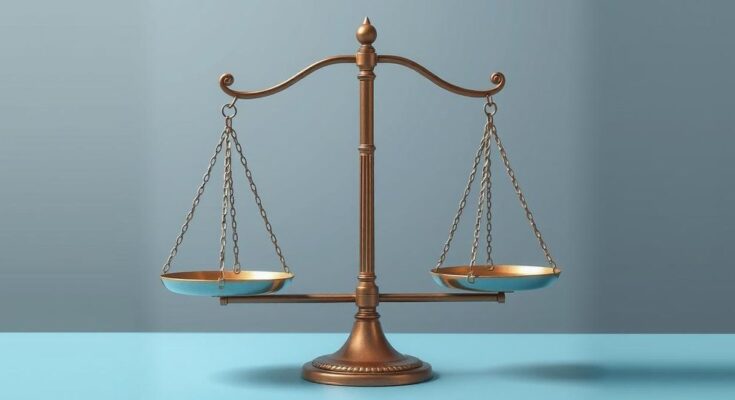Nigeria’s National Assembly has increasingly merged with the executive branch under President Bola Tinubu, raising concerns about its integrity and adherence to constitutional duties. Allegations of bribery among lawmakers to support an emergency declaration in Rivers State expose chronic ethical failures, alongside a historical pattern of corruption and a lack of transparency within the legislature. Overall, the current situation illustrates a significant deterioration of democratic principles in Nigeria, highlighting the urgent need for reform.
The current situation in Nigeria reveals a significant erosion of the legislative branch, with the National Assembly effectively merging into the executive under Bola Tinubu’s leadership. The controversy surrounding his emergency declaration in Rivers State highlights fundamental issues related to the constitutionality and ethical conduct of legislators. Despite potential justifications for the declaration based on undisclosed information, the legislature’s complicity, allegedly influenced by bribery, raises serious concerns.
Reports from reputable sources indicate that members of the National Assembly accepted substantial bribes to endorse Tinubu’s emergency actions. Allegations surfaced regarding funds distributed among lawmakers that facilitated this controversial support, undermining the legislative body’s integrity. Such practices, if true, reflect a long-standing decline in the ethical standards of Nigeria’s governance institutions.
Historically, the National Assembly has exhibited reckless financial behavior and ethical lapses, which were previously criticized by observers. Past instances included massive allocations for personal luxuries, mirroring the growing disconnect between legislators and the citizens they serve. The gap between the wealth and benefits enjoyed by lawmakers versus the struggles of the broader populace has only widened, with recent revelations of extravagant spending coming amidst a national crisis.
Furthermore, there is a troubling pattern of legislative complicity with the ruling party, which undermines the checks and balances intended by the constitution. Historically, when the People’s Democratic Party (PDP) was in power, the legislature acted as an extension of executive authority, a trend that has continued under the All Progressives Congress (APC). As a result, the checks on presidential power have diminished significantly, leading to a more autocratic governance style.
The lack of accountability within the National Assembly is also reflected in its poor record-keeping practices and the minimal effort put into maintaining a functional public interface. Compared to other global legislative bodies, Nigeria’s Assembly operational transparency is alarmingly deficient, indicating the need for a substantial reform in governance structures.
In conclusion, Nigeria’s current governance predicament is characterized by a dysfunctional legislature, flagged by serious allegations of corruption and a troubling symbiotic relationship with the executive. The unchecked power dynamics within the government threaten the rule of law and the principles of democracy, necessitating immediate attention to restore integrity and accountability within the legislative framework. Without substantive change, Nigeria’s political landscape risks further eroding, leaving only one and a quarter functional arms of government: the executive and the judiciary.
The situation in Nigeria’s governance reflects a concerning decline of the legislative branch, as it increasingly aligns itself with executive interests. Allegations of corruption and failure to uphold constitutional responsibilities point to a systemic issue that resonates with years of ethical decline. For Nigeria to regain its democratic footing, reform efforts must focus on enhancing legislative independence and accountability, ensuring that both branches operate in accordance with constitutional mandates, without succumbing to external influences.
Original Source: punchng.com




